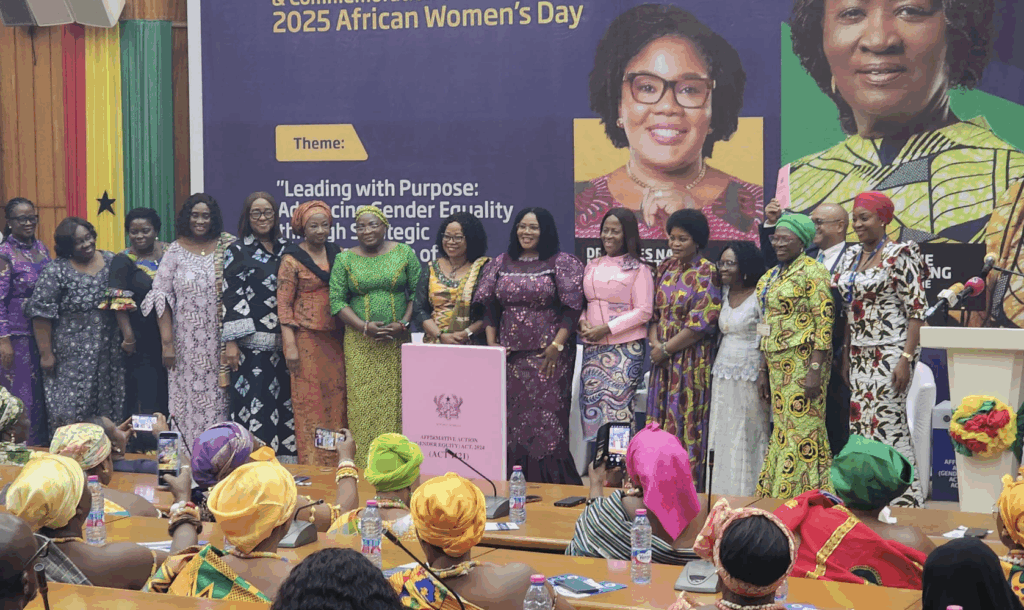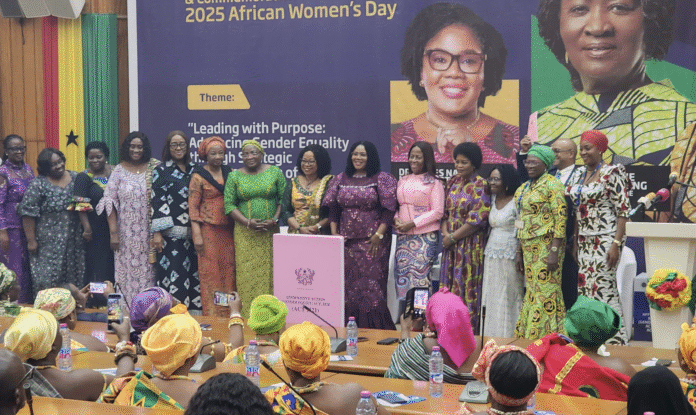
The Ministry of Gender, Children and Social Protection has launched the Affirmative Action (Gender Equity) Act 2024, Act 1211, with a call for collective efforts in its implementation.
The Act, passed by Parliament on July 30, 2024, seeks to ensure the progressive representation of women in key decision-making positions across the public and private sectors.
It targets the progressive achievement of 30 per cent of women’s representation in decision-making from 2024 to 2026, a 35 per cent achievement in 2027 to 2028, and 50 per cent by 2034.
Vice President Professor Naana Jane Opoku-Agyemang, in a speech read on her behalf at the launch in Accra, said gender equity was not a woman’s issue but a national development agenda, which drove innovation, productivity, peace and development.
She said the citizenry must play their roles to make the implementation of the Act successful.
“… Traditional authorities, civil society, every citizen, development partners, and the private sector must come together in the status of a shared goal, building a Ghana where every voice is heard and every voice counts,” Prof Opoku-Agyemang added.
She emphasised the centrality of gender equity to government’s vision, particularly in the context of Ghana’s economic transformation and the 24-hour economy, resulting in the prompt enactment of legislative instruments required to implement the Act.
The Vice President said the 24-hour economy aimed to unlock new opportunities, create jobs, and modernise infrastructure and services, with a focus on empowering women.
She expressed government’s resolve to strengthen institutional capacity, raise awareness and develop systems to make it effective.
She said government was committed to eliminating gender barriers and implementing affirmative action policies in the disbursement of government grants and procurement support services towards inclusive business and growth.
The Vice President urged more participation from girls and the engagement of men and boys in the conversation about gender equity and the Act to ensure they understood all the issues.
“… To our male allies, we see you, we thank you, and we call on you to continue walking beside us, not out of common vision but out of sheer responsibility and mutual respect,” she stated.
Dr Agnes Naa Momo Lartey, the Gender Minister, described the Affirmative Action Act as one that would position Ghana as a regional leader in gender equality, equity and governance.
She said in accordance with the Act, the Ministry constituted the Gender Equity Committee to guide and oversee the implementation of key provisions of the law.
Dr Lartey commended the resilience and relentless efforts of stakeholders, including the Presidency, government agencies, development partners, CSOs, and women’s advocacy groups in pursuit of the Affirmative Action Act.
The Minister congratulated all women in the celebration of the African Women’s Day, set aside to reflect on the achievements and challenges in advancing women’s rights and gender equity across Africa.
Zia Choudhury, the UN Resident Coordinator, emphasised that the true value of the Act lies in societal transformation, which would unlock pathways for women to lead with dignity and purpose, bringing more diverse perspectives into decision-making spaces.
He advocated a shift from intention to action, urging all stakeholders to support the implementation of the Affirmative Action Act.
DISCLAIMER: The Views, Comments, Opinions, Contributions and Statements made by Readers and Contributors on this platform do not necessarily represent the views or policy of Multimedia Group Limited.
DISCLAIMER: The Views, Comments, Opinions, Contributions and Statements made by Readers and Contributors on this platform do not necessarily represent the views or policy of Multimedia Group Limited.


